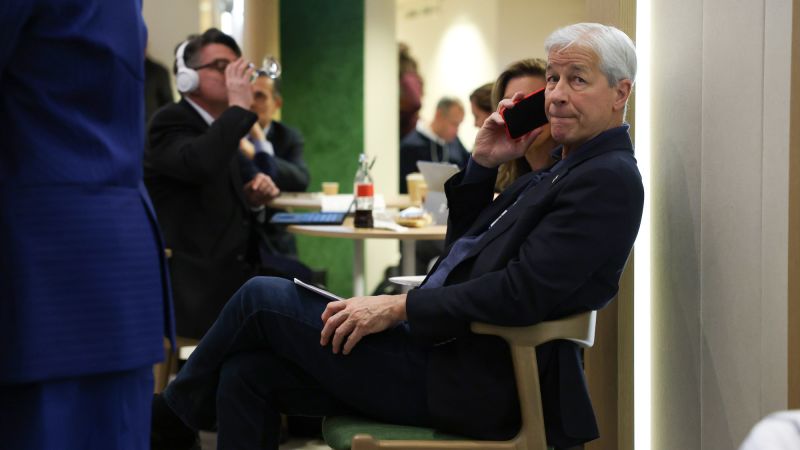Jamie Dimon, CEO of JPMorgan Chase, believes that artificial intelligence will have a significant impact on global business this year. While the full effects of AI are still unknown, Dimon is convinced that it will be as transformational as other major technological inventions in history, such as the printing press, the steam engine, and the Internet. The AI explosion has already transformed workplaces worldwide, with industries like medicine, finance, and music feeling its effects. Companies associated with the AI boom, such as Nvidia and Microsoft, have seen shares soar as AI technology is integrated into various sectors.
JPMorgan Chase, the world’s largest bank by market capitalization, is exploring the potential of generative AI within its own ecosystem. This involves incorporating AI technology into software engineering, customer service, operations, and employee productivity. Dimon anticipates that AI has the potential to augment virtually every job within the bank, impacting workforce composition by creating new roles while potentially reducing others. The organization currently includes over 2,000 AI and machine learning experts, with a new chief data & analytics officer position recently announced. However, Dimon acknowledges the risks associated with the AI boom, particularly in cybersecurity, as bad actors may use AI to infiltrate systems to steal money or intellectual property.
In response to the escalating cybersecurity challenges facing the banking industry, JPMorgan Chase has increased investment in technology and employs 62,000 technologists to enhance its defense against cybercrimes. The bank acquired most of First Republic’s assets last May after the regional bank failed, marking the second-largest bank failure in US history. Dimon highlighted the collapse of three regional lenders last spring, which prompted concerns among financial institutions and regulators about preventing a banking crisis. He noted that interest rate exposure, unrealized losses, and concentrated deposits were contributing factors to the failure of these banks, warning of potential stress in the banking system and leveraged companies if interest rates rise or a recession occurs.
Dimon also warned investors about the possibility of entering a treacherous geopolitical era, likening it to one of the most challenging periods since World War II. Despite strong economic indicators and easing inflation rates, he identified several inflationary factors, including ongoing fiscal spending, global remilitarization, restructuring of global trade, and the capital needs of the new green economy. Dimon expressed concerns about the optimistic market expectations of a soft landing, where inflation is controlled without triggering an economic downturn. He emphasized the importance of considering long-term geopolitical and policy risks rather than focusing solely on short-term economic data and interest rate changes.
Dimon has previously expressed concerns about high levels of US debt, fiscal stimulus, deficit spending, and quantitative tightening. He emphasized the unprecedented impacts of geopolitical and economic forces, stating that their full effects may not be understood until they have played out over multiple years. As investors navigate the complex global landscape, Dimon urged them to consider the potential long-term consequences of current economic and geopolitical trends. He emphasized the need to look beyond monthly data fluctuations and modest interest rate adjustments, encouraging a broader perspective on future possibilities and risks in the evolving global market environment.


